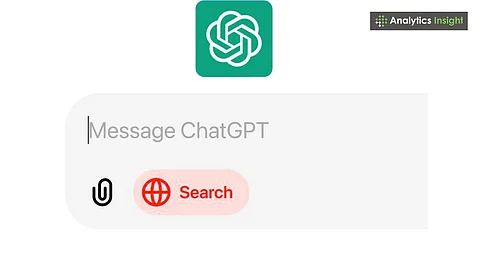

ChatGPT discoverability depends on clear, authoritative, and context-rich content.
Optimizing metadata, answering direct queries, and using structured formatting increase ranking chances.
Visibility is earned through relevance, reputation, and real-world utility, not tricks.
As AI tools like ChatGPT continue to advance, they’re becoming go-to sources for quick information, personalized recommendations, and instant clarification. This shift has sparked a pressing question among artists, brands, and digital marketers: how to rank on ChatGPT.
Unlike current search strategies, ChatGPT does not operate on backlinks or page rank. It produces answers using a combination of web data, quality signals, and natural language indications. This implies that ChatGPT discoverability strategies need to take a slightly different direction; however, the end objective remains the same: to be relevant, trustworthy, and easy to comprehend.
ChatGPT has become a discovery engine on its own, with more than 100 million users worldwide (as of early 2025). Consumers use it for:
Product comparisons.
How-to guides.
Brand research.
Even purchase decisions.
Also Read: Top SEO Tools to Improve Search Rankings
The signals the model considers to rank on ChatGPT Search include:
Understanding and context: Does the information seem clear and easy to understand?
Authority: Does the source pass the test of reliability? Is it said on reputable sites?
Relevance: Is it on user intent?
Formatting: Organized responses, including headings, bullet points, and summaries, work better.
The ContentSignal 2024 study showed that bullet-point summaries and headings enriched with keywords similarly increase the likelihood of inclusion by 23% in AI-based answers. Improving your ChatGPT discoverability starts with creating content that is clear, credible, and contextually relevant to user queries.
So, how to Rank on ChatGPT? Follow these below:
People ask ChatGPT things like, 'What’s the best CRM for startups?' or 'How do I build backlinks?' The content should mirror that. Create pages or articles that directly answer those types of questions.
Example: If an individual is a finance expert, create a page titled 'How to Start Investing in Mutual Funds – A Beginner’s Guide.'
Writing keyword-stuffed content is not an effective technique, not even when it comes to SEO for ChatGPT. Concentrate rather on tone, authenticity, and actual worth. Tools like ChatGPT prefer content that sounds like a human wrote it.
A one-hit wonder will no longer work. To maintain regular visibility on this chatbot content, it is recommended to publish multiple articles on a single subject. For example, rather than a single blog post about AI tools, create several posts that teach the basics, compare different tools, provide training, and cover industry news.
Framing FAQs, lists of pros and cons, or step-by-step processes makes content more easily scannable by language models. This puts one in a better position to be included in AI-led outputs.
To boost ChatGPT content visibility, focus on structured, human-readable information that aligns with how people naturally ask questions. Although this chatbot does not crawl websites in real-time, it will learn in the real world based on its popularity.
When the company is mentioned in blog posts, reviews, and can be found at respectable websites, the chances are that it will also be regarded as credible.
Keyword stuffing or clickbait titles.
Generic content with no unique perspective.
Poor formatting or unclear structure.
Content is hidden behind heavy ad walls or paywalls.
Also Read: AI-Enhanced SEO: ChatGPT Optimizes Content for Search Engines
Ranking on this particular chatbot isn't about tricking an algorithm; it's about being the best source for real, useful, and clear information. The formula combines high-quality content, a conversational tone, and a strong online reputation.
So, if an individual is wondering how to rank on ChatGPT search, the answer is simple: give users what they’re really looking for. Help them solve problems, explain things clearly, and do it consistently.
